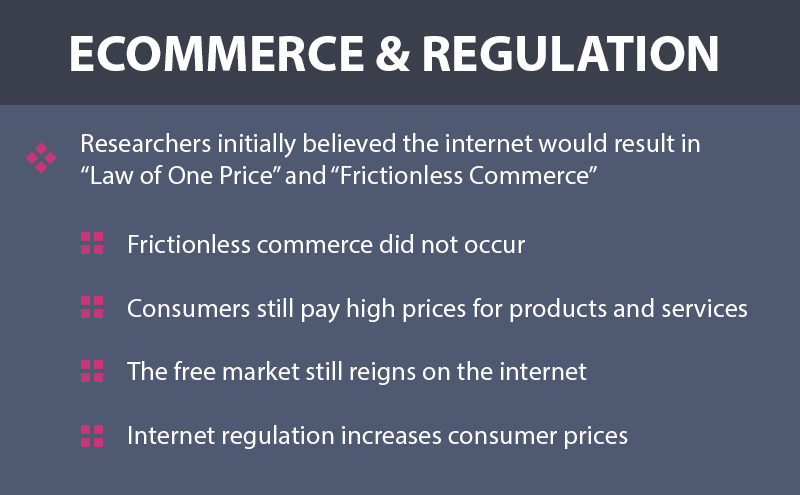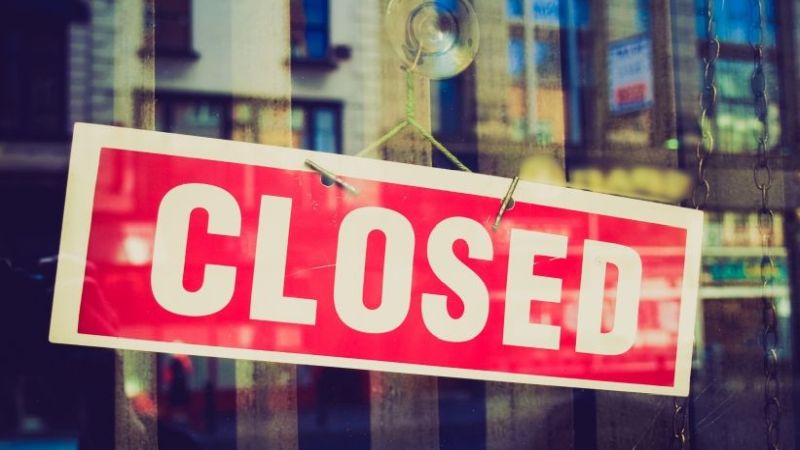Increases in internet regulation like GDPR are dangerous to consumer privacy, internet security, and the cost of internet-based consumer goods.
The release of the recent GDPR Compliance regulation by the EU which threatens to fine all companies up to 2% of total global annual turnover or €10 million Euro (about $11.66 million USD) for failing to adhere to ambiguous and oppressive new regulations concerning privacy of user data is counterproductively a danger to the security and privacy of the internet. As a result of these regulations, more companies will either fear starting up, or will go underground to escape the growing power of overambitious and overpowerful governments.
While this may seem like good news to consumers concerned about data privacy, it isn’t. On the surface, this seems to protect consumer data by the government and collections of multiple governments like the EU ruling internet companies with an iron fist. This may sound good at first to consumers, who think that now their data is safer online. Sadly, this is far from reality.
Increasing internet regulation is only going to continue to make it more dangerous for consumers to use the internet, more likely to get scammed and have their data used maliciously, and will drive up costs of online goods. Worse, it will continue to lend governments which have no right to be governing the public internet to gain more and more power, which will further limit and damage freedoms associated with the internet.
Internet regulations cause higher prices and less privacy

Experts believed that the internet would cause “frictionless commerce” by making things easier to buy. This did not occur, and prices are still high. With increased regulation, prices will only increase.
This will further have a cascading effect that will increase the prices of online consumer goods, make it less convenient to use the internet, and destroy competition of larger companies by destroying smaller competitors, further decreasing the options and increasing the prices of consumer goods. A quite detailed mathematical economic analysis of internet regulation from ivy league Columbia Law concluded that “firms benefit more than consumers from privacy regulation”.
As a result of these impending dangers and inevitable detriments to the free global internet, companies will become more aggressive in forcing internet users to actively opt-in to excessively free use of consumer data, or deny service. When more and more companies do this aggressive opt-in, many who comply out of fear of regulatory penalties will be allowed to force consumers who see the internet as a requirement in their current way of life to either completely change the way they live by not using internet services, which is becoming increasingly more implausible; or they will be forced to opt in to a form which explicitly gives a company free reign to use their data however they like without consequence.
As a result, consumer data will be less protected than ever before. Companies will now have even greater ability to use consumer data for even more purposes, now having world governments as a scapegoat for their new oppressive and unethical free use of consumer data. Instead of protecting consumer data from being collected, such new policies like the new EU GDPR only give consumers less of a choice as to whether or not to let their data be collected.
Worse than harming consumers even worse by having the opposite real-world effect of the increased internet regulation, increased regulation is also extremely damaging to small businesses around the world. Even though the GDPR only counts for European website visitors, the reality is that every country around the world is impacted because the internet is a global resource. Even U.S. companies can be prosecuted by the EU for failing to meet GDPR requirements for even one European visitor.
This will strike fear into the hearts of many small businesses who are providing good free-market competition to keep prices down and provide fair competition for larger companies. When smaller companies are no longer able to keep up with increased regulatory demands, and have to constantly fear strict penalties for doing, frankly, nothing wrong, this will eliminate competition from many small businesses and drive up prices for consumers. This damages free-market pricing, increases monopoly control of multinational corporate conglomerates, and harms both the reputation of the internet as well as the wallets of ordinary consumers.
New internet regulations create new problems

Another consequence of increased regulation is that malicious and nefarious companies and scam artists will become even more smart in the way that they manipulate their way around laws. This is more dangerous for consumers, because it means that malicious parties will come up with even more devious and untraceable ways to steal data from consumers. There will be a greater push for hackers to steal consumer data which is sold to nefarious parties who are no longer able to conduct business legally and turn to illegal, underground methods to survive.
Most scammers, hackers, and other online malicious parties are never caught. The best ones will pose an even greater threat when they are compelled to create even more untraceable methods to circumvent new regulations. The quantity and prevalence of online hacking and the compromising of consumer data has only increased with the increase in consumer regulation. 2017 spelled one of the worst years for breaches in data security in history, even in light of “increasing regulatory pressure on privacy and scarily effective security threats”. The new GDPR does not protect consumers from such dangers, it only causes even worse problems.
As a result of excessive internet regulation, many companies will begin to “check out” of the excessive regulation and give up entirely at attempting to comply with any regulation at all. Instead of putting their efforts toward complying with additional regulation, they will instead put those same efforts into finding ways to become more untraceable in their online activities so they can totally circumvent the new regulations, understanding that regulation begets regulation. If you give the government an inch it won’t be long before it demands a mile. Companies therefore will begin researching ways to circumvent the entire internet system, find more ways to bypass internet DNS, increasingly use VPNs and virtual network relays to obfuscate and encrypt their activities, and find even more creative ways to become more anonymous and untraceable online.
Instead of helping to actually improve the internet, government regulation only creates more insurmountable challenges by creating a more complex and difficult environment with smarter, more high-tech, and more difficult-to-track activities than ever before. In response, the government will almost certainly try to get even more regulation to try to regulate the problems they created with their first regulation, further multiplying the problems, decreasing the benefits of the internet, increasing the prices of consumer goods, decreasing competition, damaging the free market further, and so on and so forth in an endless, vicious cycle.
The effect of new internet regulations on companies

The only companies who will really comply with new government regulations are those companies who are big and who are public, and have the means, understanding, time, and finances to implement radical changes and afford an increased workload in compliance. But in complying with the new regulations, they will also use it as an opportunity to take advantage of the situation and force consumers to provide even more information against their desires, now being further protected by the government having forced the consumers to “opt-in” or not use their services. When all the big companies follow suit, as is happening as a result of the forced government regulations, consumers have nowhere to turn. They may also try to go underground, but most consumers will only see it as “one more box to check” and “one more freedom lost” in order to continue their lives as normal without any major interruptions to their daily life. Therefore, more consumers will now be forced to explicitly opt in to outright signing away of their rights and privacy of their data.
Every other company which does not have such means to comply or even to know about it or understand it, will be put at risk. Many will simply ignore it. Most will get away with it, but surely the governments will find a way to make an example of a few to try to strike fear into the hearts of other companies to comply. As a result, many of these companies will either continue business as normal ignoring any regulations (with fear), go out of business or shut down operations, or go underground and find new ways to circumvent the regulations.
Additional regulation does nothing to protect consumers and the general public from nefarious parties. Just like a gun control law will never stop the real killers, criminals, and gang members from acquiring or carrying guns or caring about the law, likewise an internet regulation on consumer privacy is not going to prevent any malicious parties from collecting data and using it however they like. Rather, the new regulations will just make it that much more difficult to track down these nefarious parties, as they continue to find more complex and obfuscated methods for collecting data and using it however they like under the radar. However, the new regulation additionally offers the opportunity for large companies who were previously not using consumer’s data in any nefarious way to begin being more malicious, with forced opt-ins that allow them to be free from consequences since they received an explicit (yet forced) “opt-in” from their consumers and then used this data however they wanted.
The effect of internet regulation on the economy, small business, and organizational efficiency is “no longer speculation”, according to The Hill as they analyzed the consequences of increased regulations on ISPs in 2015. Their conclusion is as intuitive as it seems: “when business activity becomes more costly, economic activity will slow.” It is therefore not only speculative but evident and proven that increasing regulation on the internet is damaging to the economy, damaging to business, and thereby damaging to the affordability of online goods and services.
Further regulation of the internet only harms consumers and damages privacy

In short, all the new regulation does to consumer privacy is damage it, increase the power of large companies, decrease the consequences for excessive data collection by large companies by forcing explicit opt-ins which are worse than before and which consumers are compelled to agree to against their desire, decrease the real-world in-practice privacy of consumer data, and increase the prices of internet goods and services over the long term.
Additionally, increased regulations will decrease profit margins for small businesses who are forced to comply with even more strict regulations, put many businesses out of business, increase monopolies, destroy the reputation of the internet as a viable and safe model for commerce, damage the free market equilibrium, increase the prevalence of online scams and hacks, and increase the cost of living around the entire world by damaging the internet infrastructure which helped to keep costs of living lower in a world where the cost of living continues to soar.
By continuing to increase governmental internet regulation, the internet will continue to become a more dangerous place, consumer privacy will be more vulnerable than ever before, and prices will continue to go up. Such is the cost of increased government regulation of the internet, with absolutely no long-term benefits, and little if any short term-benefits which are vastly outweighed by the consequences.






Are you related to Ajit Pai?
This is the impressive content, I just learned many more things reading this article. Can you please update more articles like this.